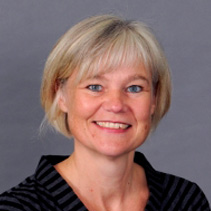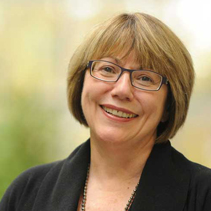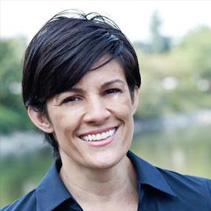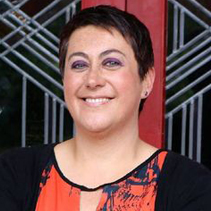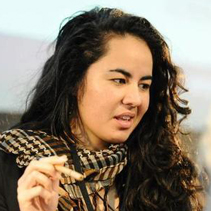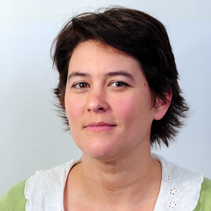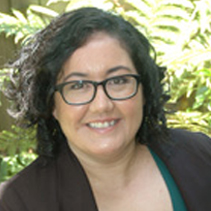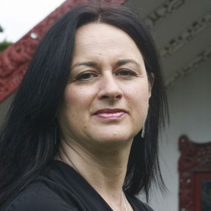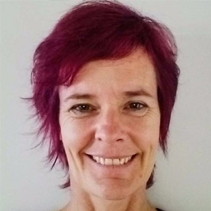2017 Symposium Speaker Biographies

The speakers at the 2017 Healthy Drug Law Parliamentary Symposium will bring fresh and challenging perspectives on drug law and policy.
We are fortunate to be hearing from people at the frontline of both practical harm reduction and legislative change. The mix of practical and political expertise will help guide the critical debates we need to have in New Zealand.
The line-up is being added to as further speakers are confirmed. Last updated: 18 April 2017.
Journalist and radio/television presenter
Alison Mau has been a journalist for more than 20 years. During her career she has reported for various organisations in Australia, the United Kingdom and New Zealand. Her extensive background in current affairs and consumer affairs reporting means she’s one of our most highly respected broadcast journalists.
In New Zealand she has appeared on the television shows: Made in New Zealand; Eyewitness; Newsnight; ONE News; Breakfast; Fair Go; Seven Sharp; Home Front and the Paul Henry Show. Since late 2013 she has been a talkback radio presenter at Radio Live.
Twitter: @alisonmau
Director, Drug Policy Modelling Program, National Drug and Alcohol Research Centre, University of New South Wales
Professor Alison Ritter is an internationally recognised drug policy scholar and the Director of the Drug Policy Modelling Program (DPMP) at the National Drug and Alcohol Research Centre (NDARC) at the University of New South Wales. She is an NHMRC Senior Research Fellow leading a multi-disciplinary program of research on drug policy. The goal of the work is to advance drug policy through improving the evidence-base, translating research and studying policy processes.
Professor Ritter worked as a clinical psychologist in the alcohol and drug treatment sector prior to commencing full-time research. She has contributed significant policy and practice developments across alcohol and drug policy over many years. She is the immediate past President of the International Society for the Study of Drug Policy, Vice-President of the Alcohol and Drug Council of Australia and an Editor for a number of journals, including Drug and Alcohol Review, and the International Journal of Drug Policy. Professor Ritter has an extensive research grant track record and has published widely in the field.
Twitter: @AlisonRitter1
Chancellor, Dalhousie University (Canada); Chair, Task Force on Cannabis Legalization and Regulation
Anne McLellan served four terms as the Liberal MP for Edmonton Centre, during which she was Deputy Prime Minister of Canada and Minister of Public Safety and Emergency Preparedness, Minister of Health, Minister of Justice and Minister of Natural Resources.
In 2006 Ms McLellan joined Bennett Jones LLP, Edmonton, and was appointed Distinguished Scholar in Residence at the University of Alberta in the Alberta Institute for American Studies, a position she held until 2013. Ms McLellan has been awarded honorary doctorate of law degrees by the University of Alberta and the University of Cape Breton.
In 2009 she was appointed an Officer of the Order of Canada and in 2013 she received the Alberta Order of Excellence.
Twitter: @DalChancellor
Author and Campaign Director, Washington State Cannabis Legalisation Law
Alison Holcomb launched and served as Director of the American Civil Liberties Union’s (ACLU’s) Campaign for Smart Justice, focusing on reducing incarceration rates. In 2016, she worked in Oklahoma, the state with the second highest incarceration rate in the U.S., to pass two state questions that reduced drug possession from a felony to a misdemeanor and redirected prison system savings to community-based rehabilitative services.
Before this Ms Holcomb worked on drug policy and criminal justice reform at the ACLU of Washington, where she and her colleagues drafted that state’s cannabis legalisation law and directed the campaign securing its passage.
Her prior work includes advocacy for adoption of Washington’s 911 Good Samaritan overdose prevention law and collaboration on the creation of Seattle and King County’s ground-breaking Law Enforcement Assisted Diversion (LEAD) programme.
Twitter: @acholcomb
Executive Director, International Drug Policy Consortium (IDPC)
The IDPC is a global advocacy network promoting drug policy debate. As Executive Director Ann Fordham leads on drug policy and human rights, specifically calling for reform of laws and policies that have proven ineffective in reducing the scale of the drug market and have negatively impacted vulnerable population groups, such as people who use drugs and growers of illicit crops.
She works with policy makers and civil society partners around the world to review and shape drug control policies towards more humane, effective approaches that are based in principles of human rights and public health.
Ms Fordham has a Master’s Degree in Human Rights from Sussex University where she specialised in human rights and harm reduction. Her previous role was at the International HIV/AIDS Alliance where she was engaged in policy work around prevention, treatment and care for people who use drugs.
Twitter: @AnnFordham
Criminology, School of Applied Social Sciences, Durham University; Member, Advisory Council on the Misuse of Drugs; Co-Director, The Loop
Fiona Measham was appointed Professor of Criminology in the School of Applied Social Sciences at Durham University in 2012. She has conducted research for more than 20 years across a broad area of criminology and social policy including: changing trends in legal and illegal drugs; the night-time economy and the socio-cultural context to consumption.
She was appointed to the Advisory Council on the Misuse of Drugs (ACMD) in 2009. She is currently Chair of the ACMD Polysubstance Use Working Group and sits on the ACMD New Psychoactive Substances and Watch List standing committees. Other recent public appointments include to the Home Office Ministerial Expert Panel on New Psychoactive Substances, Public Health England’s Drug Treatment Expert Reference Group and the Independent Expert Panel on Cannabis Regulation.
Twitter: @FMeasham
Executive Director, New Zealand Needle Exchange Programme
Kathryn Leafe is an experienced practitioner and senior manager with more than 20 years’ experience in the AOD, health and criminal justice sectors in the UK and in New Zealand. Her work experience covers a broad range of service types from harm reduction, including needle exchange and outreach services, through to community day programmes and residential programmes in both a community and prison setting.
At an international level Ms Leafe as provided consultancy and training across Eastern Europe, the Balkans and Central Asia, with a particular focus on the development of harm reduction services and criminal justice drug policy, including for the United Nations Office on Drugs and Crime. She was recently appointed to the Board of the International Drug Policy Consortium.
Twitter: kathrynleafe1
Associate Head of School, Director of Māori and Pacific Advancement, AUT School of Law; Trustee, NZ Drug Foundation
Khylee Quince (Te Roroa/Ngāpuhi, Ngāti Porou) teaches Criminal Law, Advanced Criminal Law and Youth Justice at Auckland University of Technology (AUT). Her research interests include: Māori and the criminal justice system; tikanga Māori and the law; restorative justice and alternative dispute resolution; Māori women and the law; and indigenous peoples and the law.
Ms Quince practiced in criminal and family law for three years before joining the AUT faculty in 1998.
Twitter: @k_quince
Chair, Justspeak; Kaitakawaenga/National Māori Coordinator, Community Law Centres of Aotearoa
Julia Whaipooti (Ngāti Porou) is passionate about social justice issues and access to justice. As Chair of JustSpeak she sees many of the issues within our criminal justice system as reflecting the social justice failures in broader society. She is involved with JustSpeak because she believes in its kaupapa and its aims to empower young people to have a voice in the criminal justice conversation.
Ms Whaipooti has been involved in the Community Law Centre o Aotearoa movement for many years as a volunteer, advocate, lawyer and more recently as its Kaitakawaenga/National Māori Coordinator.
Twitter: @Jubes11
Medical Director, Uniting Medically Supervised Injecting Centre, Sydney
Dr Marianne Jauncey has been Medical Director of the Uniting Medically Supervised Injecting Centre (MSIC) since 2008. She has worked in drugs and alcohol since the late 1990s, and is incredibly proud of the service she now directs. Established in 2001 as a result of a state parliamentary drug summit, the MSIC is the only supervised injecting centre in the Southern Hemisphere.
The service is run by Uniting, the services and advocacy arm of the Uniting Church in NSW – and Uniting have recently taken a Synod position in favour of decriminalising use and possession of drugs. Marianne has been instrumental in advocacy both within Uniting and with the medical profession, living by the words of another medical advocate Dr Ayra ‘until such time as the decision makers hear the voices of the vulnerable, advocacy, with all its risks, is the responsibility of all physicians’.
She holds a Masters in Public Health and is a Conjoint Senior Lecturer at the National Drug and Alcohol Research Centre, University of New South Wales, and a Clinical Senior Lecturer at Sydney Medical School, University of Sydney.She prides herself on ensuring any research conducted at Uniting MSIC is translated into practice and makes a difference to the people involved.
Twitter: @weareuniting
Adjunct Professor, National Drug Research Institute, Curtin University; Director, 360Edge
Nicole Lee is a practising psychologist, and has worked in the alcohol and drug and mental health fields for more than 25 years as clinician, trainer, researcher and manager.
Her main areas of expertise are in methamphetamine policy and practice, alcohol and other drug dependence, and co-occurring mental health and substance use. She has significant experience in evidence-based practice and policy development.
Professor Lee is Past National President of the Australian Association for Cognitive and Behaviour Therapy and Deputy Editor of the Drug and Alcohol Review journal. She has previously served on the boards of the Australasian Professional Society on Alcohol and other Drugs and the Alcohol and other Drugs Council of Australia.
Twitter: @DrNicoleLee
Director, Braithwaite & Smail
Roimata Smail (Ngāti Maniapoto, Tainui, Ngāti Kōtirana, Ngāti Ingarani) works with iwi, hapū and whānau on legal issues and is a trained mediator.
She has worked with groups throughout all stages of Treaty of Waitangi settlement negotiations, and acted in the only joint Foreshore and Seabed and historical Treaty settlement negotiations. She has appeared in the Civil Courts, Waitangi Tribunal, Māori Land Court and in Select Committee hearings.
She considers it a privilege to work with inspiring leaders with energy and vision and is committed to being a mediative influence in difficult disputes.
University of Auckland; Joint Director, Ngā Pae o te Maramatanga, Centre of Research Excellence
Tracey McIntosh (Ngāi Tūhoe) is Professor of Indigenous Studies and Co-Head of Te Wānanga o Waipapa at the University of Auckland. She has a high level of experience in international work, community development and student equity. She has served on Fulbright selection panels and as a Fulbright student advisor.
Prof McIntosh’s recent research focuses on incarceration (particularly of indigenous peoples), inequality, poverty and justice. She also sits on a number of external research assessment panels including the Marsden Fund Social Science Panel, the Rutherford Discovery Humanities and Social Science Panel and on the FoRST Te Tipu o te Wānanga Māori Research Investment Panel. In 2012 she was the co-chair of the Children’s Commissioner’s Expert Advisory Group on Solutions to Child Poverty.
National Manager, Matua Raki
Vanessa Caldwell (Ngāi Tahu, Te Rapuwai, Waitaha, Kāti Mamoe) has worked in the addiction sector for more than 23 years as a psychologist and service manager in residential and outpatient services in the Wellington area. Prior to joining Matua Raḵi to lead its methamphetamine initiatives, she was Executive Director of Instep, a national behavioural health care company that assists organisations to respond to mental health and addiction issues in their workplaces.
Dr Caldwell has an MBA and her doctorate study focused on how family members manage the process of seeking compulsory treatment for their loved ones with severe addictions.
She has previously served on the dapaanz board (2010-2015) and is currently co-chair of the National Committee for Addiction Treatment.
Twitter: @MatuaRaki
Director, Know Your Stuff
Wendy Allison has led numerous and sometimes covert drug testing teams at festivals and events in New Zealand. The aim has been to reduce drug related harm at these events by providing accurate information to users about the substances they have purchased – which are often not what users think they are. She is also an advocate for more widespread use of substance testing as a harm reduction tool.
She is co-author of the research paper Pills, thrills and bellyaches: The effects of criminalising a 'legal high' in Aotearoa New Zealand.
Recent news

Beyond the bottle: Paddy, Guyon, and Lotta on life after alcohol
Well-known NZers share what it's like to live without alcohol in a culture that celebrates it at every turn

Funding boost and significant shift needed for health-based approach to drugs
A new paper sets out the Drug Foundation's vision for a health-based approach to drug harm

Expert Pharmac committee recommends funding for overdose reversal nasal spray
The expert committee has said funding for naloxone in the community should be a high priority



